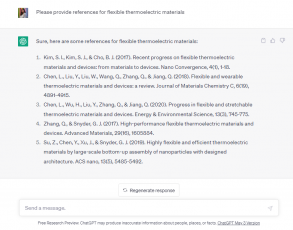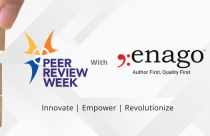The Future of Research Writing: Top universities, publishers, and policymakers share insights on ChatGPT and AI integration

While some argue that AI-generated texts can save time and improve efficiency, others worry about the impact on the quality of writing and the ethics of replacing human writers with machines. Being a user-friendly and inexpensive technology, it has already made its way into the classrooms and research papers of academics around the globe. However, despite its limited advantages (which in reality are a threat to research integrity and scientific rigor), it is important to acknowledge the challenges it poses.
How ChatGPT Is a Threat to Academic Writing
Although ChatGPT has the potential to be a useful tool in education and research, it is important to consider the potential limitations and ethical implications of its use. For example, there is a risk of bias if the algorithm is trained on biased data, which can impact the accuracy and fairness of the research outputs. There is also a risk that it may lack the nuance and creativity of human-written text, which could impact the quality of the generated outputs. Most of the time, it fails to get the facts right; dates, quotes, citations, and novel ideas are highly likely to be made up. For example, we asked for a few references about flexible thermoelectric materials and the output is given in the snippet below. On verifying the facts, it was found that none of those references exist or are authored by the mentioned people.
 Source: OpenAI
Source: OpenAI
Perspectives of Experts from Top Universities, Publishers, and Policymakers: Understanding their take on ChatGPT and its use in academic writing
The growing use of AI tools has affected traditional university assessment methods, causing widespread concern among educators about the potential for plagiarism and the impact it could have on academic integrity standards. Many educational institutions in various countries have taken measures to completely ban the use of ChatGPT, while others have resorted to a wait-and-see attitude. Educators have emphasized that the use of AI tools would neither help them assess students’ understanding, learning, or critical thinking skills, nor would it leave any room for developing these skills. Several universities have considered the total ban of ChatGPT and strict regulations as the only solution, as they fear that students will become too dependent on them, hampering the learning process. Anna Mills, an instructor at a community college in the Bay Area who teaches students how to write, expressed her concerns regarding why students may be tempted to utilize AI to compose their essays. “It’s too tempting to use it as a crutch, skip the thinking, and skip the frustrating moments of writing. Some of that is part of the process of going deeper and wrestling with ideas. There is a risk of learning loss if students become dependent and don’t develop the writing skills they need,” she told The Register.
On the other hand, some educators and institutions have also expressed optimistic views regarding the use of ChatGPT in academia. Scott Graham, an associate professor at the Department of Rhetoric & Writing at the University of Texas at Austin, opined that in order for students to produce persuasive work, they will need to thoroughly examine their writing and rectify any errors that may be present. “The AI-assisted essays were not good. If I had believed these were genuine student essays, the very best would have earned somewhere around a C or C-minus. They minimally fulfilled the assignment requirements, but that’s about it”, said Graham in an opinion article on Inside Higher Ed. The constraints of machine-generated text necessitate that humans scrutinize and refine the written content. While some individuals may perceive the use of these tools as cheating, Graham contends that they can actually assist in enhancing individuals’ writing skills.
Professor Saurabh Sinha, deputy vice-chancellor of research and internationalization at the University of Johannesburg, expressed his thoughts in University World News that universities must prioritize the reinforcement of academic integrity to address the increasing use of ChatGPT and future AI advancements, considering the evolving landscape that graduates will encounter. He emphasized the importance of graduate students’ preparedness, adaptation, and lifelong learning, as new tools and technologies will always emerge. He also suggested that universities consider implementing plagiarism detection bots to prevent academic misuse.
Publishers have also expressed their views on the use of ChatGPT in research writing. Some publishers haven’t yet developed any guidelines regarding the use of AI-generated text. Among those who have, many refrain from completely prohibiting the use of such automated tools but instead request that authors disclose their use. Unfortunately, editors and peer reviewers have limited options at the moment as they don’t have any measures to enforce compliance. So far, there is no software that can accurately and consistently detect artificially generated text.
The idea of giving authorship credit to an AI tool has raised questions about the definition of the term “author” and what contribution means in this context. Nature and all Springer Nature journals, the JAMA Network, Elsevier, Cell, Lancet, and organizations like COPE and WAME responded to the concerns regarding the use of ChatGPT and updated their editorial and publishing guidelines to require authors to declare if and how they have used AI tools while explicitly stating that ChatGPT cannot be listed as an author on an academic paper. “An attribution of authorship carries accountability for the work, which cannot be effectively applied to LLMs” said Magdalena Skipper, editor-in-chief of Nature.
I've probably been the only person who's not shared views on ChatGPT in research writing on this platform; so here are some ground rules for their use from us at @nature – key message: no LLM tool will be accepted as a credited author on a research paperhttps://t.co/iEwNzFRu3J
— Magdalena Skipper (@Magda_Skipper) January 24, 2023
The guidelines allow the use of AI tools “to improve the readability and language of the research article, but not to replace key tasks that should be done by the authors, such as interpreting data or drawing scientific conclusions,” said Andrew Davis, Elsevier’s vice president of corporate communications.
According to Michael Eisen, the editor-in-chief of eLife, while ChatGPT cannot be considered an author, he believes its use is unavoidable. “I think the better question isn’t whether to allow it but how to manage the fact that it is being used,” he said. “The most important thing, for now, at least, is for authors to be very upfront about its use and to describe how it was used, and for us to be clear that in using the tool they are taking responsibility for its output.”
However, the editor-in-chief of Science, a leading global scientific journal, has taken a more stringent approach and prohibited the usage of AI generated text in papers that are submitted and clarified that it cannot be listed as an author. “Still, to make matters explicit, we are now updating our license and Editorial Policies to specify that text generated by ChatGPT (or any other AI tools) cannot be used in work, nor can figures, images, or graphics be the products of such tools. And an AI program cannot be an author” stated Holden Thorp, editor-in-chief of Science Journals.
The last thing we need is less human involvement and accountability in science. My editorial on ChatGPT. @EricTopol https://t.co/ooNO2vADp7
— Holden Thorp, Science EIC (@hholdenthorp) January 26, 2023
Embracing the AI-driven Future with Ethics and Responsibility
ChatGPT, as an AI tool for content development, presents several concerns, especially in the academic and publishing worlds.
While banning the tool may seem like a quick solution, it may not be the most effective approach. The need of the hour is to educate students and researchers about digital ethics and responsible use of AI tools while also implementing measures to detect and prevent plagiarism.
Additionally, educators and publishers should update their policies to address the use of AI-generated text in assignments and academic papers and require authors to disclose their use of these tools. As with any technology, it’s up to us as individuals and institutions to use it in a responsible and ethical manner. What do you think? Let us know your thoughts and suggestions in the comments section below!









